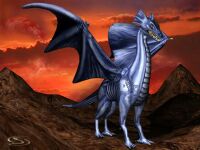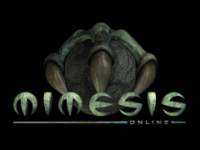|
|
|
Main News Forums Games Games Database Top 100 Release List Support Files Features Reviews Previews Interviews Editorials Diaries Misc Download Gallery Music Screenshots Videos Miscellaneous Staff Members Privacy Statement |
Mimesis Online Developer Diary, part 11 Derek Handley, 2001-10-03
On a regular basis we will feature a developer's diary made by the Mimesis Online development team. In this diary, Derek Handley and others from the Tannhauser-Gate crew, tell us by who they are influenced.
October is here, and the winter wardrobe is starting to look needed. The walnuts are ripe, and it's the best time of year to visit some of Poland's great food markets, and take your pick from the stalls. The atmosphere at the studio is calm - calmer than it was before the Betas began, more relaxed. There's just as much work to do, but it's of a different kind. I took the opportunity to corner a few of the team, and get them to answer a question that was put to me on a few occasions. I have addressed a variety of questions during my time here
at Tannhauser Gate, ranging from simple to answer ones ('How
is PvP resolved in the game?', 'How will my character's skills
and psionic powers develop over time?') to the ones I'd rather
not answer so as not to give to much away ('Since they won't
all be in it at the start, when will each of the Player Character
species be introduced?', 'Can an entire land be destroyed?')
to the ones that are complex and require longer thought ('Where
do you get your ideas from?'). Today, I thought I'd get the
core of the creative team to answer a question that has been
put to us a few times, and never fully answered: What are
your influences? Artur Jaskólski (co-founder
and head of the studio): I actually think it'd be easier to say what inspires me to
work, and what keeps me going while I'm working, rather than
trying to define that something is a clear influence. While
I work - obviously, by work, I'm refering to animation work,
which I still get to do a little of, and not administrative
work - I like to have hard rock playing. I find it gives me
an energy boost, gets the creative juices flowing. I don't
find silence conducive to work. Marcin Baryski (co-founder, head
of game and game rule development): Second choice - Frank Herbert. Each world he created - and I don't mean just the ones in "Dune" - came alive on paper, characters seemed to live and breathe. The depth of detail, the epic sweep of history that went into his work...not to mention the fact that the truths in his work will always be relevant. His work is amazing, simply put. Reading it made me want to create worlds, populate them, think everything through, and then take my 'receivers' - readers, viewers, whatever - to such a new world that they can feel around them, that is not familiar, maybe even has fantastic elements, yet seems plausible and consistent. Final choice for me is H. R. Giger. His work is alien, with familiar elements, very solid and yet organic. There are a lot of artists whose work I like and respect, including many working in the comics industry, but looking at "Mimesis Online" now, with the bio-organic elements, with the familiar made strange - I think there is an element of Giger's influence in there. I don't think "Mimesis" is something that anyone will look at and think 'Oh, that's Gigeresque', but I think that when Artur and I were creating the basic gameworld, there were images from that at the backs of our minds. Tomasz Gardiasz (head concept
artist): As for Boris Valeyo, I admire his skill and his work - the
detail and care that you can see in his brushwork. He's a
master craftsman, and I feel that any artist could learn something
from him. Waldemar Strzelczyk (head of
the graphics team): Derek Handley (head writer): Scott McCloud is another person that I count as a major influence,
and not just for his writing, nor for his insight into comics,
but for the sheer scope of his activity. He is involved in
so many things - I've always pictured him as very open-minded,
very keen to have a rich experience of life, and to open others'
eyes. I consider him an influence because I try to keep the
same scope of activity going, in a variety of guises. And
I think the "Earth Stories" in Eclipse Comics' "Zot!"
were simply breathtaking. Okay, we've bared our influences, as requested by a few people,
so I hope they are happy to have the answer to their question.
I'm out of here before Myrthos throws me out for taking up
too much space :) Derek Handley. |
||||
|
All original content of this site is copyrighted by RPGWatch. Copying or reproducing of any part of this site is strictly prohibited. Taking anything from this site without authorisation will be considered stealing and we'll be forced to visit you and jump on your legs until you give it back. |
||





 Mimesis
Online from Polish Developer Tannhauser Gate, is a role-playing
game that transports you to a far future world where the unexpected
and mysterious waits around every corner. An unimaginable
catastrophe on a cosmic scale transformed this world, playing
havoc with the natural order of things, twisting everything,
even time itself, wiping out civilisation as we know it. Universes
died, billions upon billions of species vanished, and a new,
fragile and barely stable world was born. The beings who survived
the catastrophe have tried to rebuild their world, each in
their own way, and now live side-by-side but not truely in
peace with each other, not truely accepting each other. Nations
have emerged, almost completely isolated from each other by
nigh-on impenetrable barriers. This is the twisted world of
Mimesis Online.
Mimesis
Online from Polish Developer Tannhauser Gate, is a role-playing
game that transports you to a far future world where the unexpected
and mysterious waits around every corner. An unimaginable
catastrophe on a cosmic scale transformed this world, playing
havoc with the natural order of things, twisting everything,
even time itself, wiping out civilisation as we know it. Universes
died, billions upon billions of species vanished, and a new,
fragile and barely stable world was born. The beings who survived
the catastrophe have tried to rebuild their world, each in
their own way, and now live side-by-side but not truely in
peace with each other, not truely accepting each other. Nations
have emerged, almost completely isolated from each other by
nigh-on impenetrable barriers. This is the twisted world of
Mimesis Online.